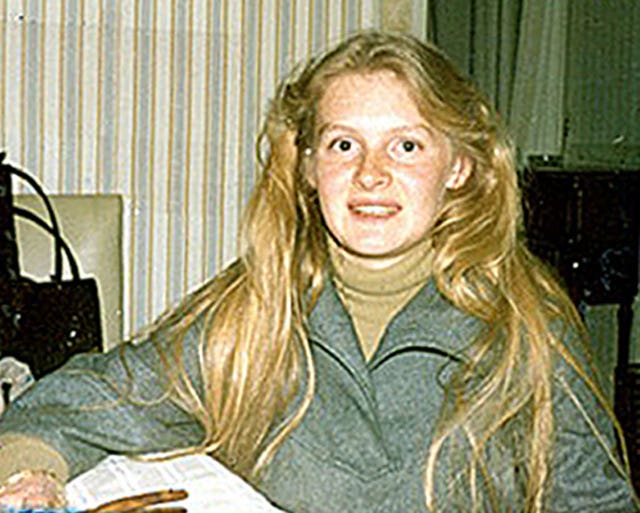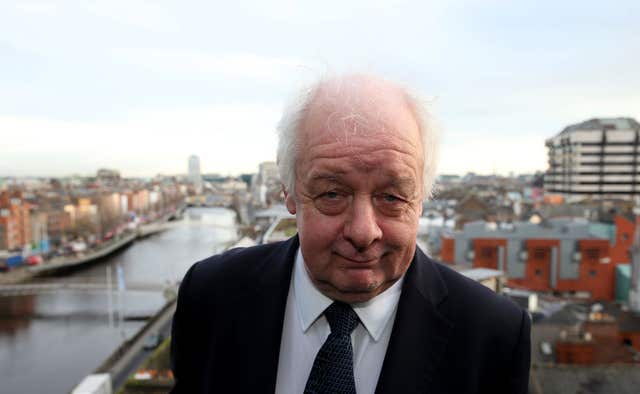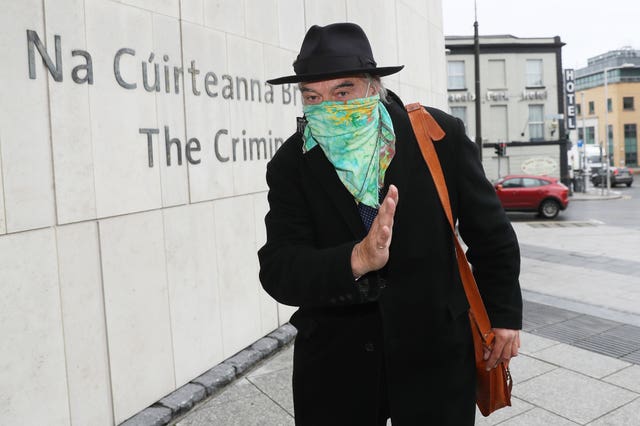
A third attempt to extradite Ian Bailey to France – where he is facing a 25-year prison sentence for the murder of Sophie Toscan du Plantier – is an “abuse of process”, his lawyer has told the High Court in Dublin.
Bailey, 63, was arrested last year after a High Court judge endorsed a European Arrest Warrant issued by French authorities.
He is wanted in France for the murder of Ms Toscan du Plantier, in Schull, Co Cork, in December 1996.

Bailey, with an address at The Prairie in Schull, was convicted of murder in his absence by a court in Paris in May last year. The three-judge court imposed a 25-year sentence.
He had no legal representation for the case, did not attend the court and described it at the time as a farce.
His lawyer, Ronan Munro, said on Wednesday that he has an “iron-clad” and “unassailable” right not to be surrendered to French authorities as two previous extradition attempts had been struck down by Irish courts.
Bailey, who appeared in the Dublin court wearing a navy suit and a green scarf as a face covering, did not speak as he listened from the back of the courtroom.
Oscar-nominated Irish film director Jim Sheridan attended the sitting as he is understood to be making a documentary about Bailey.

Mr Munro said: “The central submission is that there is a binding judgment of the Supreme Court that prohibits the surrender of Ian Bailey.
“In Mr Bailey’s case there was a final judgment in 2012 – and if that wasn’t enough, there was another judgment in the High Court in 2017.
“Were there a third set of proceedings, I say prima facie that it is indicative of an abuse of process. I don’t think it is controversial to say that.
“There have been cases of three warrants being issued unknown to the person being surrendered, but in general in criminal proceedings, if you’re going to do it a third time then there would want to be a good reason.
“If we’re looking at a third attempt to have him prosecuted then the court must apply a very high level of scrutiny and this may be indicative that the process is being abused.”

Mr Munro said the extradition attempt is a breach of Bailey’s human rights, as was the delay in the trial and the fairness of any trial that may await.
He read a written statement from Bailey which said he “had nothing to do with” the murder of Ms Toscan du Plantier.
In the affidavit, Bailey said he could not pursue his career as a journalist due to the negative media coverage he has received and his ongoing legal battle.
“Because of my predicament of being a suspected murderer, news organisations were reluctant to be associated to me,” he said.
Bailey said his mental health has suffered in the 23 years since Ms Toscan du Plantier died.
The court was told that as he cannot work as a journalist, he is in receipt of social welfare, which he tops up by selling poetry and doing odd jobs.
Bailey said he suffers from depressive moods and a skin condition brought on by the stress of the court cases.
He has a law degree from University College Cork and wanted to attend the King’s Inns in Dublin to pursue his legal studies, but could not due to the ongoing legal cases.
Bailey said he found writing poetry has a cathartic effect, as counselling has proved unsuccessful, and he has published two collections of his work.
He said he suffers nightmares and sleep disorders due to flashbacks from his previous arrests, adding: “My sleep patterns have been prone to being disturbed with very realistic hunt and re-arrest dreams. They intensified in 2019.”
His affadavit said he has never been charged by Irish prosecutors over the case, but since 2010 the European Arrest Warrant means he has been unable to travel freely.
Bailey said he could not visit his elderly mother in the UK when she was dying, and not being able to attend her funeral “was one of the cruellest aspects of the whole process”.
He said he has attempted to live a normal life, but with legal proceedings starting again, his standing has been lowered in the eyes of the small west Cork community he lives in.
His solicitor Frank Buttimer said in an affidavit to the court that French authorities had not communicated with him or his office to get Bailey to attend the trial.
Mr Buttimer said he only became aware through media reports in 2019 that French authorities wanted to extradite his client.
Mr Munro told the court this was “strange” and “an unusual aspect” of the trial in France.
The case continues on Thursday and Friday with a decision to be delivered at a later date.


Comments: Our rules
We want our comments to be a lively and valuable part of our community - a place where readers can debate and engage with the most important local issues. The ability to comment on our stories is a privilege, not a right, however, and that privilege may be withdrawn if it is abused or misused.
Please report any comments that break our rules.
Read the rules here